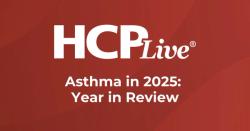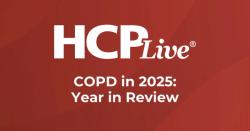
OR WAIT null SECS
Promising Data from InPedILD Phase 3 Trial Revealed at ERS Congress 2022
Novel insights into the risk-benefit profile of nintedanib in children and adolescents with fibrosing interstitial lung disease (ILD) were provided by late-breaking data presented at ERS 2022 regarding the InPedILD clinical trial.
Novel insights into the risk-benefit profile of nintedanib in children and adolescents with fibrosing interstitial lung disease (ILD) were provided by late-breaking data presented at the European Respiratory Society (ERS) International Congress 2022 regarding the phase 3 InPedILD clinical trial.
The trial results were revealed in a session program presented by lead investigator Robin Deterding, MD, Breathing Institute at Children's Hospital Colorado.
While there are no licensed treatments for fibrosing ILD in the pediatric population, nintedanib is approved for the treatment of pulmonary fibrosis in adults. In order to determine the dosing and safety of the drug among pediatric patients with fibrosing ILD, Deterding and a team of investigators initiated the InPedILD trial.
"Based on the nintedanib mode of action, preclinical evidence and the clinical benefit in adults, there was a compelling rationale for examining its effect in children living with interstitial lung disease," Deterding said in a statement. "This trial supports its potential use as a treatment with an acceptable safety profile for children and adolescents, for whom no approved evidence-based therapies exist."
The randomized, double-blind, placebo-controlled, clinical trial included patients between the ages of 6-17 from 64 different sites throughout 23 countries. Eligible patients had a diagnosis of fibrosing ILD on 2 high-resolution computed tomographies (HRCTs) or on lung biopsy and HRCT, a forced vital capacity (FVC) equal to or greater than 25%.
The co-primary endpoints of InPedILD were the area under the plasma concentration-time curve at steady state at week 2 and week 26; and the proportion of patients with treatment-emergent adverse events during the double-blind period.
Participating patients were randomized 2:1 to receive nintedanib or placebo in addition to standard care for 24 weeks followed by open-label nintedanib. Investigators used weight-dependent allometric scaling to determine dosing. The patients’ FVC was measured at baseline, week 2, 6, 12, 24, as well as during regular subsequent visits.
The trial demonstrated favorable results that supported both endpoints. With the weight-based dosing regimen of nintedanib in children and adolescents, investigators observed comparable exposure seen in adult patients with fibrosing ILD.
The research reported an acceptable safety and tolerability profile with no new safety signals when compared with adult patients with idiopathic pulmonary fibrosis (IPF), other progressive fibrosing interstitial lung disease (PF-ILD), and systemic sclerosis-associated interstitial lung disease (SSc-ILD).
Regulatory applications will be submitted to the European Medicines Agency and U.S. Food and Drug Administration with the support of these findings.
“In conclusion, data from the InPedILD trial demonstrate that nintedanib has an acceptable safety and tolerability profile in children and adolescents with fibrosing ILD, with no new safety signals observed compared with adult patients” investigators wrote. “Exposure levels achieved with weight based allometric dosing were within the range observed in adults. These data provide a scientific basis for the use of nintedanib in children and adolescents with fibrosing ILD.”


